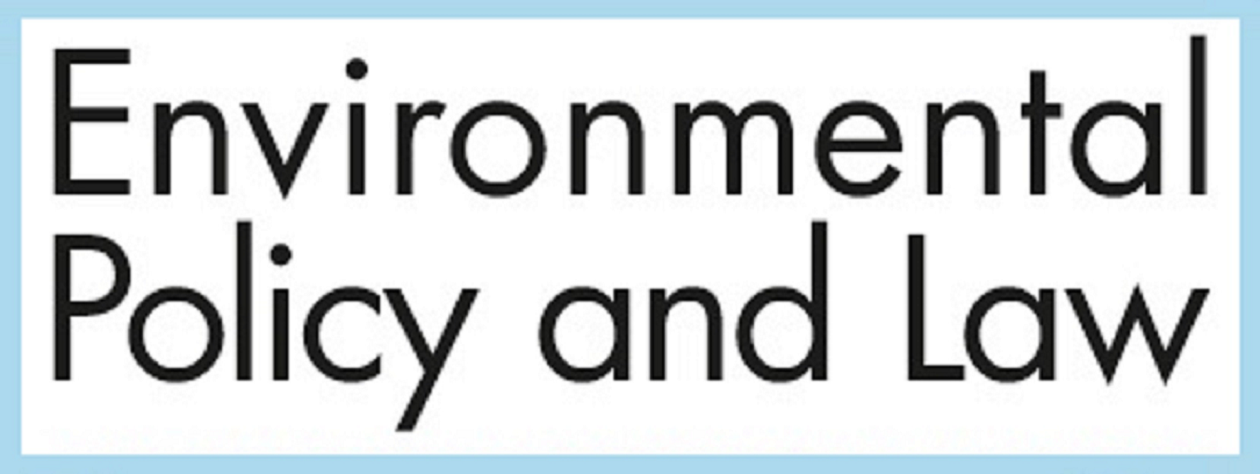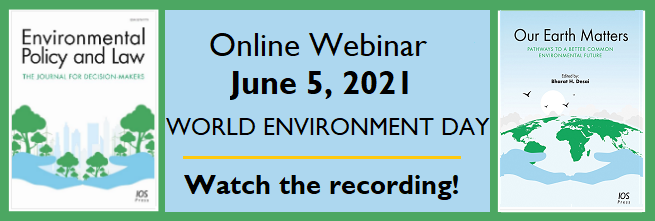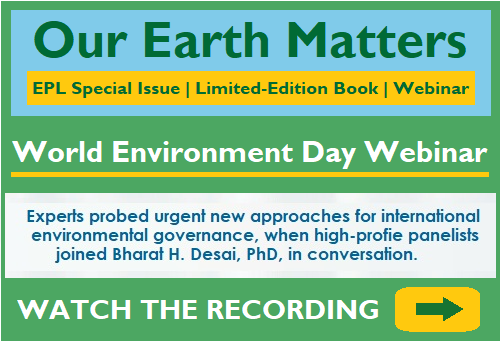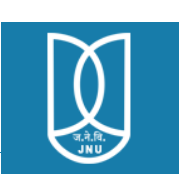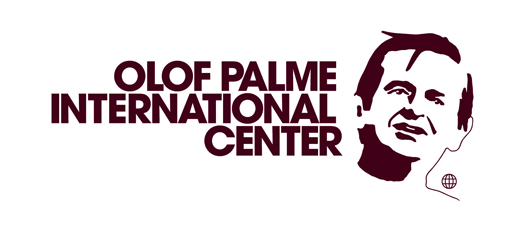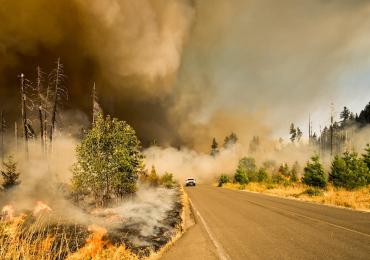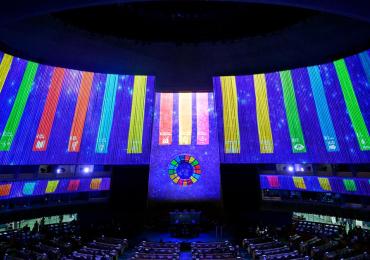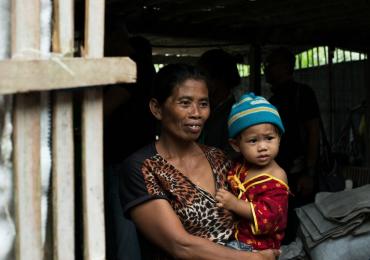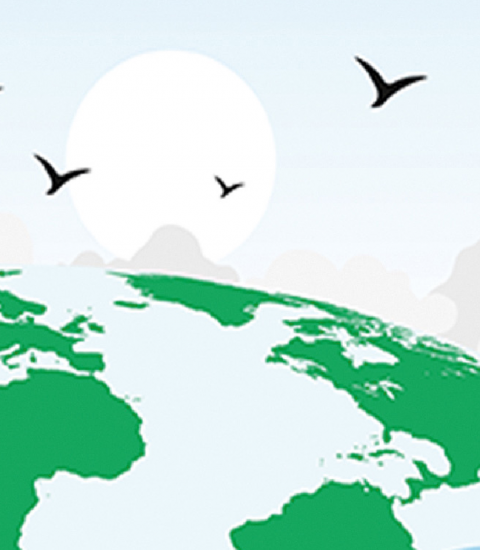
[by Carmel McNamara, IOS Press]
Amsterdam, NL – On World Environment Day, expert scholars joined in our webinar to raise awareness to the fact that current global environmental law and policy are failing. On the theme of "Our Earth Matters," the webinar was moderated by EPL's Editor-in-Chief Bharat H. Desai, PhD, and included two sessions chaired by Edith Brown Weiss, PhD, and Nicholas A. Robinson, JD, who were joined by expert scholars. The panel probed urgent new approaches for international environmental governance and you can watch the full recording of the webinar now!
The webinar on June 5, 2021 was also the occasion to officially launch the limited-edition book Our Earth Matters and EPL special issue (view the press release here). In these publications, the invited authors reexamine the current global approaches, as well as explore the future trajectory with new ideas, tools, techniques, processes, ecological frameworks and institutional innovations for international environmental governance in the 21st century and beyond.
The first session included discussions around the review of global environmental change, chaired by Edith Brown Weiss (Georgetown University, Washington, DC); and the second session, chaired by Nicholas A. Robinson (Pace University School of Law, New York), turned to look forward and focus on actions that can be taken. We were delighted that a large number of the special issue/book contributors could participate in this webinar to discuss these important topics.
Watch the recording at the foot of this page or online here
Probing urgent new approaches for international environmental governance
During the event, the panel of high-profile experts took part in a major discussion that raised pertinent questions about how we might move ahead to forge those pathways to a better environmental future – what have the last 50 years taught us and what are the next steps and priorities?
Of this occasion, Dr. Desai comments: “The launch of ‘Our Earth Matters’ on June 5, 2021 – World Environment Day – provides us a pathway to Stockholm+50 (in 2022) and beyond. We have only one Earth, so it is imperative that the decision-makers of all the sovereign states, the UN, and other international institutions urgently translate into action the scholarly ideas contained within the pages of our book and special issue, and the topics discussed during the webinar, for our better common environmental future.”
The webinar began with a number of participants outlining their initial comments. “This is a very important and remarkable day, on World Environment Day, because we do face a crisis,” commented Edith Brown Weiss prior to the first session beginning. She then gave an overview of the contribution on Earth System Law (as unfortunately Louis Kotzé could not be in attendance) which emphasizes the need for a new legal paradigm and highlighted a particular section of the paper (see Box 1), which was shared because it broadens the framework and challenges us to ask "What do we need in the age of the Anthropocene?" The other panelists in this session then provided a short discussion based on the findings in their papers.
“Environmental law is a necessary set of tools but is insufficient to meet the challenges of our degrading global environment,” commented Nicholas A. Robinson, chair of the second session, in which six of the participants presenting their papers. After which the chair then posed the question: “What can be done to awaken ourselves, the body politic, the governments to the fact that in 2022 there is a chance to reset the agenda. If we are to have some sort of solidarity in a move toward more implementation of environmental law, what are the steps to take?” In response, Ole K. Fauchald (University of Oslo, Norway) considers there will be some sort of awakening during this year: “What we can do as an academic community is being willing to spend time in efforts to promote these issues in our respective jurisdictions, to make politicians and those involved in bureaucracy aware of what’s going on.”
What are the steps to take in a move toward more implementation of environmental law?
Professor Robinson concluded the session by commenting: “We know the problems, we know what the deficiencies are. What we don’t have the next step the jump ahead to deal with those questions, and I think it is very important for those of us that deal with law look for what are the ‘change agents’ in law. We do have tools in place – like the ‘environmental impact assessment’ (EIA) – but they are at the periphery of environmental law making and not at the center of decision making.”
The session ended with a response from Owen McIntyre, PhD (University College Cork, Ireland): “It actually goes beyond EIA and it is about the development of methodologies in law, and those methodologies being promoted through law, so that they have a legitimacy and be employed at multiple scales – regional, national, transnational, and global. Methodologies and, for example life cycle analysis, are absolutely critical to be able to identify, and to help people understand, the true cost of what they consume, what they eat, how they travel, what they wear, what they buy, what they dispose of. In terms of law, transnational laws reach areas that others cannot reach and methodologies support that. Law can promote various methodologies to highlight and that can help environmental protection to be more effectively integrated into trade, etc.”
Webinar program
The full program, participants, and supporters are listed below.
PROGRAM
Introduction
Welcome: Bharat H. Desai (Jawaharlal Nehru University, New Delhi, India)
Session 1
Topic: Review of Global Environmental Challenge
Chair: Edith Brown Weiss (Georgetown University, Washington, DC, USA)
Panelists: Yann Aguila (represented by Lionel Chami), Bharat H. Desai, Louis Kotzé (could not join due to unforeseen circumstances), Nele Matz-Lück, Nicholas A. Robinson, and Nico Schrijver
Session 2
Topic: Road Ahead to Stockholm+50 and Beyond
Chair: Nicholas A. Robinson (Pace University School of Law, New York, NY, USA)
Panelists: Ole K. Fauchald, Said Mahmoudi, Owen McIntyre, Greg Rose, Oliver Ruppel, Anna Sundström
Contributor affiliations:
- Yann Aguila (Global Pact Coalition, France)
- Edith Brown Weiss (Georgetown University, USA)
- Bharat H. Desai (Jawaharlal Nehru University, India)
- Ole K. Fauchald (University of Oslo, Norway)
- Louis Kotzé (North-West University, South Africa)
- Said Mahmoudi (University of Stockholm, Sweden)
- Nele Matz-Lück (Kiel University Law School, Germany)
- Owen McIntyre (University College Cork, Ireland
- Nicholas A. Robinson (Pace University School of Law, USA)
- Greg Rose (University of Wollongong, Australia)
- Oliver Ruppel (Stellenbosch University, South Africa)
- Anna Sundström (Olof Palme International Centre, Sweden)
- Nico Schrijver (Leiden University, the Netherlands)
From IOS Press:
- Marten Stavenger (IOS Press, the Netherlands)
- Steffen de Jong (IOS Press, the Netherlands)
Supporting organizations
Global Pact Coalition
Since 2018, the Global Pact for the Environment project is under discussion at the United Nations. Civil society must come together and demand that States recognize our right to live in a healthy environment. Discover more via the Global Pact Coalition website.
-----
ICEL
The International Council of Environmental Law (ICEL) was founded in 1969. The need for deploying ICEL expertise is greater now more than ever, as environmental degradation trends worsen, and the face of the Anthropocene epoch is ever more visible. Discover more via the ICEL website.
![]()
-----
IUCN
The International Union for Conservation of Nature (IUCN) harnesses the experience, resources and reach of its member organizations. This diversity and expertise makes IUCN the global authority on the status of the natural world and the measures needed to safeguard it. Discover more via the IUCN website.

-----
Jawaharlal Nehru University
Jawaharlal Nehru University (JNU) is the foremost university in India, and a world-renowned center for teaching and research. The School of Environmental Sciences has received the University Grants Commmision's recognition as a Centre for Excellence. Discover more via the JNU website.
-----
Olof Palme International Center
The Olof Palme International Center (OPIC) is the Swedish labour movement's umbrella organisation for international solidarity and advocacy. The organization works globally for democracy, human rights, peace and social justice. Discover more via the OPIC website.
Those people who joined on June 5 were able to participate and submit questions directly to the speakers during the event.
Thank you to everyone who participated, supported, and joined us for the webinar on World Environment Day!
